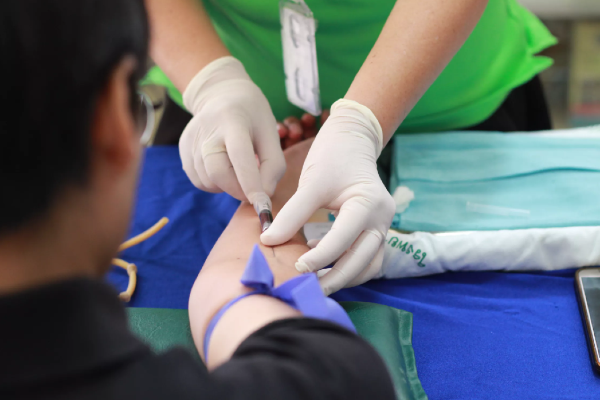According to the world's largest survey on public attitudes towards health and science, wealthier countries have less trust in vaccines.
One-third of French people don't agree that immunisation is safe, and it remains the sole country with a majority of people who believe that science and technology will reduce job availability.
According to a Wellcome poll of over 140,00 people aged 15 or older across 144 countries, 55 percent of French people are worried about the number of jobs reducing as a result of science.
What impacts people’s trust in vaccines?
— Wellcome Trust (@wellcometrust) June 19, 2019
Find out the results from the Wellcome Global Monitor, the world's largest survey into attitudes towards health and science https://t.co/liTZostmE2@GallupNews | #wmonitor #VaccinesWork pic.twitter.com/nebymbyizI
The British medical charity devised the research, which was conducted by Gallup World Poll last year. 91 percent of Irish people believe that vaccines are important for children, according to data.
Ireland was placed in the Northern Europe group in the rest of the report. In many locations, people with higher levels of scientific education are less likely to believe that vaccines are unsafe.
58 percent of Northern Europe participants strongly agree that vaccines are effective.
Shockingly, it was discovered that those living in high-income countries have less faith in vaccines due to the anti-vaccination movement. Many in this group are refusing to believe in the benefits, or believe that vaccines are dangerous for children.
A recent UN report stated that roughly 169 children did not receive their first dose of the measles vaccine from 2010 to 2017. Latest US figures show that the number of measles cases have exceeded a thousand.
Imran Khan, Wellcome’s head of public engagement and leader of the study, told AFP;
“I think we expected that general trend, because where we have seen that scepticism and concern about vaccines, that tends to be in more developed countries."
When a doctor or a nurse or a scientist says they know what is making us unwell, or what can make us better, we’re inclined to trust them. But why? And what would happen if we didn’t? #wmonitorhttps://t.co/SXaVMKD2lb
— Simon Chaplin (@sdjchaplin) June 19, 2019
He added; “But I think the extent of the difference is surprising and some of those numbers were really startling.” 79 percent of people worldwide agreed that vaccines are safe, and 84 percent feel they are effective.
“What’s likely to be going on there is men are more confident or overconfident for the same level of knowledge, or equally we can say that women are under confident,” said Khan.
Bangladesh and Rwanda had the highest levels of trust in vaccines, with almost 100 percent of candidates believing they were valuable, safe and effective.
“Perhaps what you see is the people in those countries can see what happens if you don’t vaccinate," Khan explained.

Western Europe had the lowest confidence levels in vaccines, with 22 percent of people disagreeing that vaccines are safe. “I guess you could call it the ‘complacency effect,’” Khan commented.
According to Khan, this contrasts with more developed countries where;
“If you don’t get vaccinated, you’re still less likely to catch that infection, and if you do get infected, you might not become as unwell or might not die, because we’ve got quite good healthcare systems in place”.
A global gender divide in self-reported levels of knowledge of science was seen in the report, with only 38 percent of women saying they know either 'some' or 'a lot' about science.
49 percent of men claimed to have some of a lot of intelligence about science, in contrast.
“What’s likely to be going on there is men are more confident or overconfident for the same level of knowledge, or equally we can say that women are under confident,” Khan stated.
Wellcome aims to give governments a baseline in monitoring how attitudes change over time.
The charity hope that their fascinating findings can inform government and health organisational policy, especially in terms of vital immunisation.









